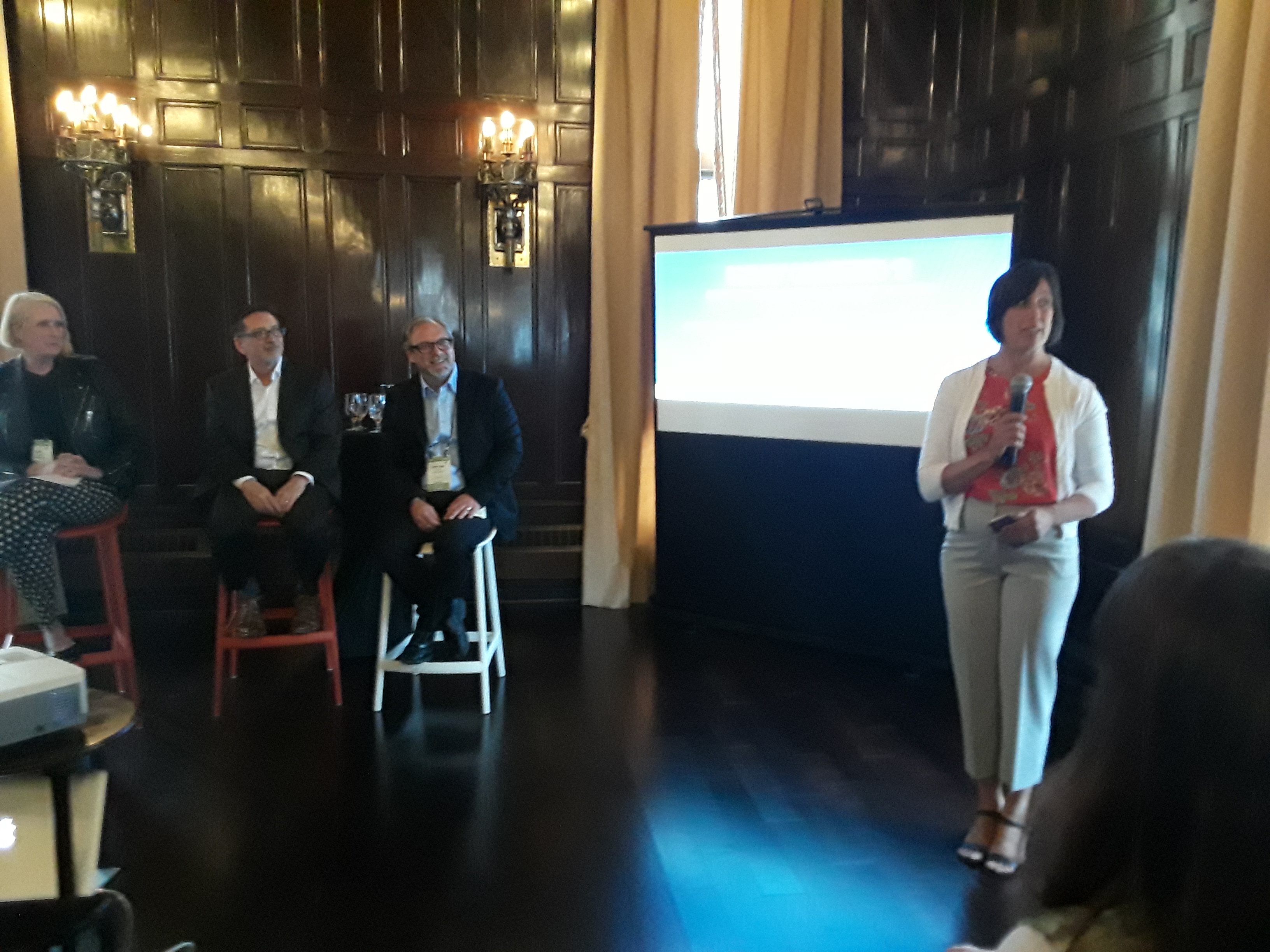
“Refuse refuse.”
That was the quippy directive from William McDonough, chief executive of McDonough Innovation, who helped kick off Tuesday’s morning keynote speech at the Sustainable Brands 2019 conference in Detroit.
Refusing refuse – translation: rejecting plastic waste – was the focus of the workshops and speeches that Great Lakes Now attended on the second day of the event.
One session, “Catalyzing Action on Ocean Health through Innovative Exploration, Viral Awareness and Experiential Learning,” looked at plastic pollution and how companies and consumers can engage in solving the problem.
“We need to be very smart about what the tradeoffs are and not create new problems,” said Bridget Croke, the Closed Loop Partners vice president of external affairs.
Consumer Engagement
James Sullivan, the vice president of sustainability management and strategy at SAP, brought up Bumble Bee Foods working with SAP on a way to get consumers engaged with the company’s sustainability efforts. Customers can scan a QR code on Bumble Bee’s Anova brand of frozen tuna steaks to trace where the fish was caught along with information about the fishing community that caught it, size of the catch and more.
Consumer engagement is something that Alexis Olans Haass, the director of sustainability and business strategy for adidas, discussed at that workshop as well.
“It is very hard for people to relate to their recycling, to get excited about recycling; most people see it as a burden,” she said. “But you can boil it down to nobody wants a dirty beach.”
Later, during the “Stemming the Tide: Using Science and Collaboration to Curb Plastic Marine Debris” lunch presentation, Dow North America Sustainability Manager Jennifer Ronk shared a story about how picking up litter in her own community while out with her kids managed to prompt neighbors into action as well.
“We can’t do this alone,” Ronk said. “We have to work together.”
The Value of Water
That theme of collaboration carried on even in the “Why Water?” panel at The Detroit Club later that evening.
“If we’re going to survive as a species on this planet, if we’re going to live a fulfilling life and not just survive, everyone deserves clean water,” said Dune Ives, executive director of Lonely Whale, to start off the event.
Ives pointed out the statistic that between 800 billion and 10 trillion gallons of untreated wastewater finds its way into our waterways each day.
“There’s a big disconnect between the value of water, which is really the price we pay for water, and the values behind water, which is what it means to us to our cultures, our economy,” said Matt Welch, the operations director of Circle of Blue.
“We have to tell the story of what the issues are around water,” he added. “We have to tell people what’s going on, and together we have to work together to change the innovations and redesign what water’s going to look like.”




